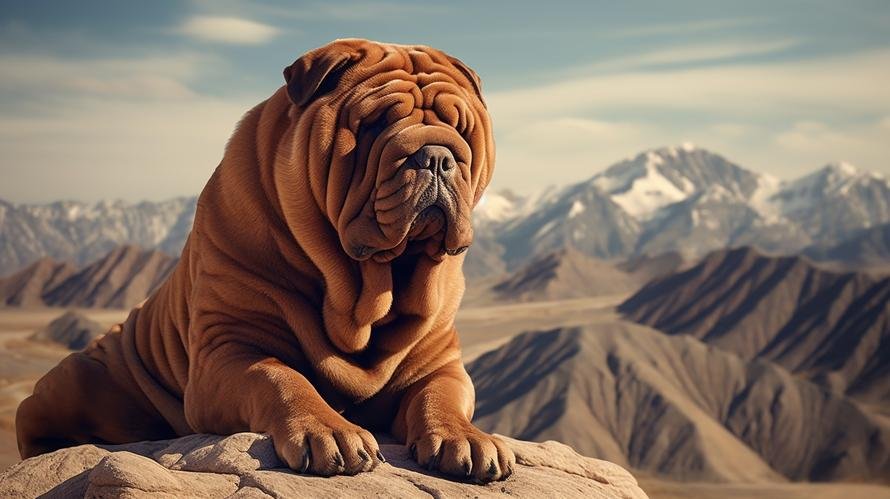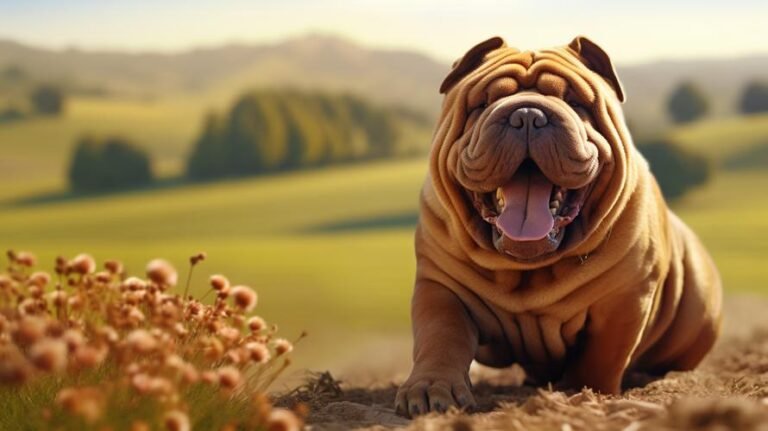Chinese Shar-Pei dogs are a uniquely charming breed, recognized for their deep wrinkles and distinct blue-black tongues. Did you know that these dogs were originally bred as palace guards in China? Yes, those squishy, practical-looking faces were once the zealous bodyguards of Chinese emperors. Isn’t that something interesting about their history? But raising a Shar-Pei is no small feat. Their diet, in particular, can be a little tricky. This is evident from Shar-Peis being prone to significant health issues if not cared for appropriately.
Now let’s pivot a bit from the historical to a more practical concern: What’s the best food for these furry Chinese gentry? Is it something fancy and palatable? Or perhaps a simple, homemade recipe?
The truth is that the best dietary plan for a Chinese Shar-Pei is a well-balanced one consisting of meat-based proteins, carbohydrates, fats, and specially designed kibble. However, there’s more to the nutrition of a Shar-Pei than meets the eye. Having a strong understanding of their specific dietary needs can help ensure that you provide your royal buddy with a diet that would make even his ancient ancestors proud.
Before we embark on the journey of feeding Shar-Peis, it’s important to acknowledge that the dietary needs can differ from one Shar-Pei to another depending upon their age, weight, health status, and lifestyle.
For puppies, a food blend that supports healthy growth is ideal. Puppies tend to require more protein, ideally animal-based, to support their rapid growth and development of muscles. Ingredients such as chicken, beef or fish should be the first thing listed on the back of the pack. You also want to look for a balance of carbohydrates, such as vegetables, fruits, and grains that will supply them with the energy they need to remain playful and active. Experts suggest that for Shar-Pei puppies, around 22% of their diet should be protein, with about 8% being fat.
For adult Shar-Pei dogs, a diet rich in protein but with moderate fats still remains important. They need a well-balanced diet that includes a variety of vegetables and some whole grains. The optimized proportion here seems to be around 18% protein and 5% fats.
Senior Shar-Peis on the other hand will do better with a “maintenance” diet. This might look like about 20% less calories than what you would feed a younger, more active dog. This is also the stage where supplements might become vital to maintain your beloved companion’s health and vitality.
Now, one must keep an extra eye on the fat content in the diet of Shar-Peis irrespective of their age. Unusually high-fat content in the diet of this specific breed can lead to Pancreatitis, an inflammation of the pancreas. This could become a serious health hazard.
Additionally, Shar-Peis are notorious for being prone to food allergies. Regularly consuming a food that they are allegeric to could manifest symptoms such as skin infections, gastrointestinal troubles, or even behaviorial changes. Most often these allergies arise from grains like corn and wheat or certain proteins like chicken and beef. It’s always best to consult a vet if you suspect your Shar-Pei may be suffering from food allergies.
Hydration is key! Just like any other dog breed, Shar-Peis also need a good amount of fresh water daily to maintain vital bodily functions. Hydrated Shar-Peis are happy Shar-Peis.
Yearning for a specific brand recommendation? Here comes the answer – One of the best specific dog food for Shar-Pei is “Blue Buffalo Wilderness High Protein Dog Food”. This dog food is grain-free, high in protein, and doesn’t have any of the poultry by-product meals, corn, wheat, soy, artificial flavors or preservatives that commonly trigger allergic reactions.
To wrap this up, feeding your beloved Shar-Pei takes a mix of the right nutrients, appropriate portions, and lots of love. Being aware of their very specific needs will not only help them stay healthy but also happy. And remember, just like humans, no two dogs are the same so it’s essential to keep an eye on your dog’s individual response to their diet and adjust as necessary.
In the end, it’s not just about feeding your Shar-Pei, it’s about nourishing them. It’s about sharing the love that they give you, back to them. When done right, feeding your Chinese Shar-Pei can become an act of love. So, here’s to happy, healthy, and hefty Shar-Peis.



